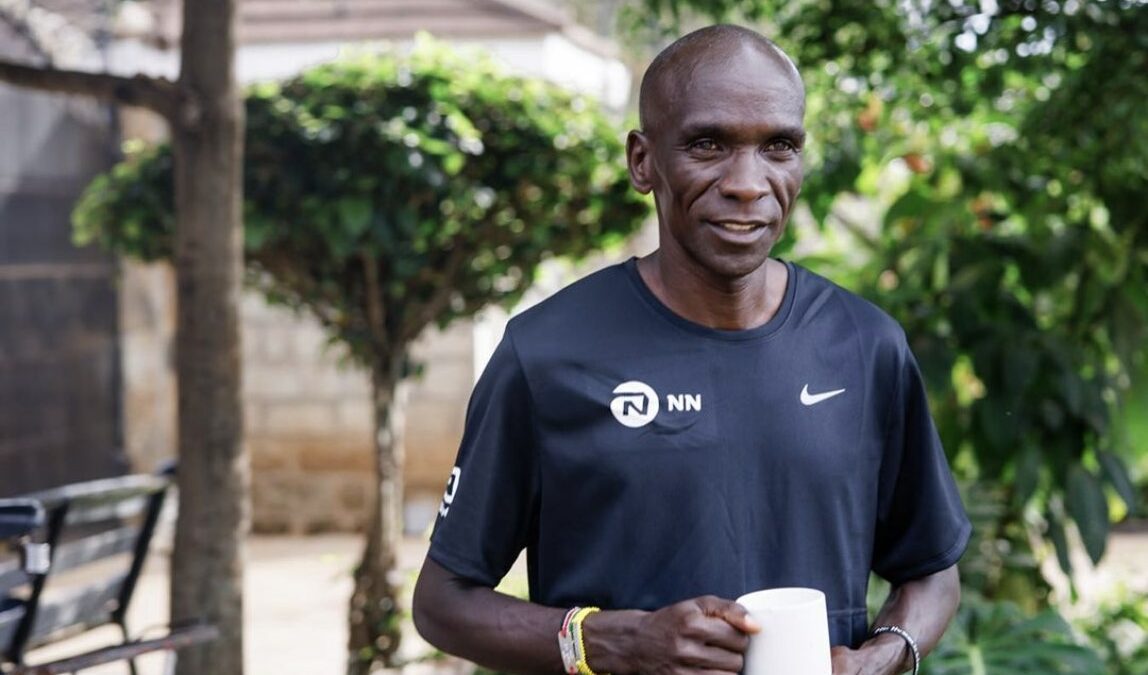Recover like Kipchoge: three simple ways you can be like the GOAT
Use these tips to elevate your recovery game to GOAT-like status
 Photo by:
NN Running
Photo by:
NN Running
The world’s fastest marathoner knows how to take care of himself. Eliud Kipchoge, 38, lives and trains at the NN Running camp in Kaptagat, Kenya. While the athlete is constantly in demand to share his wise words and insight with the world, he knows how to say no (he calls it Vitamin N) in order to keep his focus where it is most needed.
Here are three simple ways Kipchoge makes sure he takes care of his body and mind during his downtime. Most of us wouldn’t be able to keep up with Kipchoge on a training day, but we can certainly follow his recovery plan.
View this post on Instagram
Sleep is essential
Aim for a minimum of 8 hours of sleep a night. Research increasingly shows how essential sleep is to all aspects of our lives, and how detrimental spending months or years sleep-deprived can be. Kipchoge gets close to 10 hours of sleep daily.
“My average sleeping hours is 10 hours. I sleep for eight hours at night, and two during the day”.
You asked him and @EliudKipchoge answered. Did your #AskEliud questions make the cut? pic.twitter.com/r7oGKfUUGU
— INEOS 1:59 Challenge (@INEOS159) July 4, 2019
Kipchoge follows a strict sleep schedule, heading to bed by 9 pm at night and rising at 5:45 am. He also fits in a daily nap. Sports writer and commentator Cathal Dennehy spent three days in 2021 at Kipchoge’s training camp, and writes: “Despite the many demands on his time, he’s very, very good at doing nothing.”
Hydrate well, and eat nutritious food
The exact amount of water we need to drink is oft-debated, but you’re probably not drinking enough. Kipchoge hydrates well and his diet consists largely of simple, whole foods. The GOAT has worked with a nutritionist to tweak his diet for optimal performance, including adding more protein. Many runners tend to eat less on recovery days, thinking their bodies don’t need as many calories–but we actually need to dial in nutrition on recovery days to help our bodies repair tissue damage and become stronger. Protein is essential.
Nutrition for Recovery:
This could be a textbook on its own filled with all sorts of controversy…
So to keep it basic, if you’re dealing with soreness or high levels of muscle damage, think of it as how do we keep protein synthesis elevated?
— Steve Magness (@stevemagness) March 4, 2021
Dennehy observed that Kipchoge eats simple, mainly local food: “homemade bread, local fruits and vegetables, lots of Kenyan tea, some meat, and a generous daily helping of his favourite–ugali, a dense maize-flour porridge.”
Massage and physiotherapy are fantastic (but so is listening to your body)
Kipchoge sees his long-time physiotherapist, Peter Nduhiu, twice a week for a massage. The athlete hasn’t reported any major injuries, and Nduhiu says there’s a reason for that. “He hasn’t had injuries, but he makes it easy for me, because he follows what the coach says,” he explains. “If you’re managing an issue and tell him to slow down, he does exactly that.”
Massage and physiotherapy are fabulous tools if they are accessible to you. If they aren’t, self-massage and mobility work can help. Most importantly, listen to your body: if Kipchoge slows down to help his body recover well, so can you.


